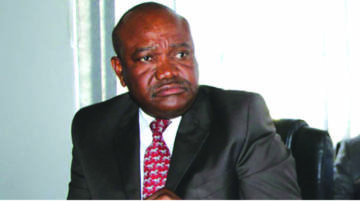
Suburban

On March 26, Harare voters will have an opportunity to choose their preferred representatives in council and parliamentary by-elections to fill vacant seats in the city. The by-elections come at a time when there has been debate about the calibre of councillors given the ever deteriorating service delivery in Harare. Former Harare mayors Mr Muchadeyi Masunda and Mr Ben Manyenyeni have in the past bemoaned the calibre of some of the councillors they worked with. Below the Harare Residents Trust explains the role and attributes of councillors.
*******
Who is a ward councillor?
A ward councillor is one of the most significant actor in the governance and administration of a local authority, in both rural and urban areas. The Electoral Act (Chapter 2.13) defines a councillor as a member of a council. There is confusion and sometimes misunderstanding among the citizenry on what role councillors play in the provision of social services. These information snippets are therefore designed to enlighten ratepayers and residents on the important role that a councillor plays in the local authority in the provision of social services.
In terms of Section 119 (1) of the Electoral Act, the following qualify a person to be voted for as a ward councillor;
Any person who—
(a) is a citizen of Zimbabwe; and
(b) has attained the age of twenty-one years; and
(c) is enrolled on the voters roll for the council area concerned; and
(d) is not disqualified in terms of subsection (2); shall be qualified to be elected as a councillor.
Functions of Ward Councillors.
They include, but not limited to:
- Giving direction and controlling council affairs;
- Making key decisions to guide council operations;
- Providing broad supervision to officers to ensure that work is done in line with policy;
- Monitoring council progress;
- Seeing to it that corruption is minimised and rate payers get value for their money;
- Investing complaints from members of the community;
- Being spokespersons and watchdogs of the community;
- Making policy for the council. This is through attending and participating in council committees and other council for a as directed by council; Interacting with staff through the CEO or Town Clerk so as to discuss various issues pertaining to council operations.
Councillors are elected officials who represent wards in local government. The main responsibility of councillors is to provide services within their local areas.
Such services include
- refuse collection
- water provision
- street lights
- maintenance of local roads

Ben Manyenyeni
Some residents’ demands on potential councillors
Ahead of the 2018 elections, the HRT facilitated community dialogue between contesting parliamentary and council candidates in a Candidates’ Debate Series in order to afford available candidates an opportunity to sell their visions to the electorate.
Residents are agreed on what they want from all their elected public office bearers;
- A social contract confirming the fulfilment of all electoral pledges made during the campaign period.
- Locally based representatives not visiting representatives who have no properties in the communities they want to represent. Residents want Candidates who belong to their communities.
- Serving MPs and Councillors who have served for two terms should not be re-elected irrespective of their previous performance, unless there is overwhelming evidence that they did very well for their community. Sitting Councillors and MPs who supported the disconnection of water and the planned introduction of prepaid water meters by local authorities and supported the hiring of WellCash Debt Collectors to torment residents for owing council were openly decampaigned by the HRT.
- Sitting MPs who have never fully accounted for the Constituency Development Funds given to them by the Parliament of Zimbabwe in liaison with the Ministry of Finance and Economic Development were also openly decampaigned by the HRT. Community development funds including the ward retention funds by local authorities are not party funds but public or ratepayers funds which must be used in a transparent and accountable manner in community development.
Disqualification for election as a councillor
- Section 119 (2) states that a person is disqualified from contesting and being nominated as a candidate for or from election as a councillor if one is a member of another local authority, a member of Parliament, adjudged or otherwise declared insolvent or bankrupt and has not been rehabilitated. One may also be disqualified if five years immediately preceding the date of his or her proposed nomination as a candidate he or she has been convicted of contravening section 48 of the Rural District Councils Act [Chapter 29:13], section 107, 108 or 109 of the Urban Councils Act [Chapter 29:15] or an equivalent provision of any Act repealed by the latter Act; or (e) he or she has been convicted of an offence involving dishonesty.
These are other provisions that addresses this disqualification.
- According to Section 41 (7) of the Urban Councils Act (Chapter 29.15), a councillor shall cease to be a Councillor if he or she is convicted of an offence and sentenced to imprisonment for a period of six months or more. This section specifies that once this happen, the councillor shall forthwith cease to exercise his functions or to be entitled to any remuneration as a councillor and, subject to subsection ( , he shall cease to be a councillor at the expiry of thirty days from the date of such sentence. — Harare Residents Trust/Suburban Reporter



